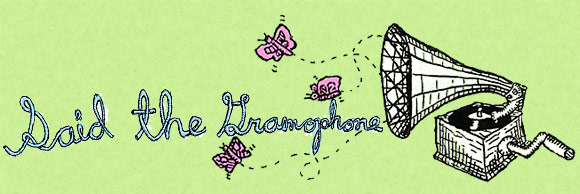Yo La Tengo - "Autumn Sweater"
Jay and the Techniques - "Apples, Peaches, Pumpkin Pie"
Because John Locke said it, it must be true: the argument from authority is a fallacy - we cannot conclude that a statement is right simply because a know-it-all uttered it. This is true as a rule in deductive reasoning, and true too in informal logic in part because of the ubiquitous inability of top experts to agree. In most fields, there are central questions that even the leading, equally authoritative, authorities bicker about. Are there parallel universes? The best theoretical physicists can't agree. Is the structure of natural language hard-wired into our brains? The question is a source of endless strife among linguists and cognitive scientists. For workers in song, unanimity is no more easily achieved. You would think, given the gargantuan effort invested over millennia of music history to capture and communicate what it's like to be in love, there would be more agreement on the issue. Take these two takes, for instance, composed within a mere half-century of each other, and espousing wildly different, seemingly irreconcilable views of that state of the heart.
If we believe Yo La Tengo, love is a melancholic affair from the start: enchantment arises alongside the anticipation of its end; love begins in its autumn. If, however, Jay and the Techniques are right, love is a sweetening force that transforms us into giddy, silly, unworried creatures. Both authors are experts - take the above texts as evidence - but their conclusions are seemingly incommensurable. So which is it? Assuming there can be only one correct answer, my money's on parallel universes.
[Buy Yo La Tengo, Jay and the Techniques]
Posted by Jordan at May 5, 2011 8:10 PM



